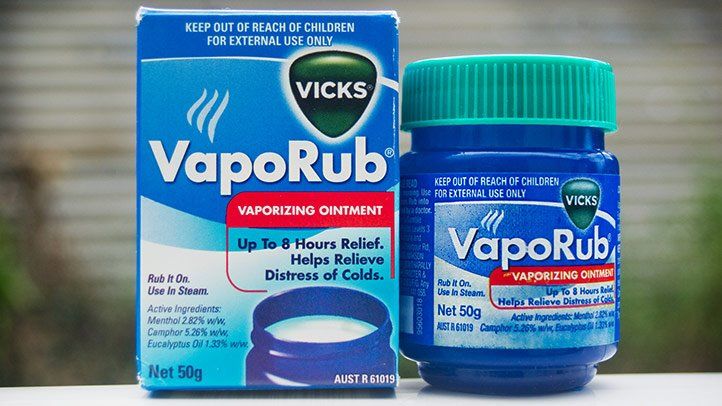Using Your Kitchen as an All-Natural Remedy Resource
Your kitchen is so much more than just a place to prepare tasty meals - it can also serve as your own personal home remedy headquarters. Many common ingredients found in the average kitchen contain healing properties that rival costly pharmaceuticals when it comes to treating minor health issues.
Why Use Kitchen Remedies?
Relying on natural kitchen ingredients as remedies offers numerous advantages over traditional medicine, including:
- Cost - Kitchen staples are a budget-friendly solution.
- Availability - You likely already have many helpful items stocked.
- Safety - Natural foods/substances often have fewer side effects.
- Effectiveness - Many all-natural options deliver robust results.
Best Remedy Ingredients Hiding In Your Kitchen
Scan your kitchen now to spot these beneficial items offering soothing medicinal abilities:
- Honey - Antibacterial and wound-healing properties.
- Ginger - Anti-inflammatory and nausea-easing effects.
- Garlic - Antimicrobial and immunity-boosting perks.
- Apple cider vinegar - Digestion/pH balancing abilities.
- Salt - Soothes sore throats and eases congestion.
- Lemons - Loaded with antioxidants and vitamin C.
Remedying Common Health Issues With Kitchen Ingredients
Your kitchen likely houses dozens of ingredients to remedy all kinds of minor ailments, from coughs and colds to cuts and burns. Always confirm an item is safe for your situation prior to use.
Cough and Cold Soothers
Whip up homemade elixirs using things like:
- Honey - Calms coughs and sore throats.
- Ginger - Eases nausea from colds/flu.
- Garlic - Boosts immune function against infection.
- Lemon - Loosens chest congestion.
Digestive Discomfort Relievers
Settle upset stomach issues utilizing:
- Ginger - Reduces feelings of nausea.
- Mint - Calms indigestion after rich/spicy meals.
- Yogurt - Promotes good gut bacteria growth.
- Apple cider vinegar - Improves digestion and pH levels.
Scrapes and Pain Soothers
Tend to minor wounds using:
- Honey - Natural antibacterial able to help heal scrapes/burns.
- Apple cider vinegar - Disinfects and cleans cuts.
- Ice packs - Reduces swelling and inflammation on bumps/bruises.
- Aloe vera - Soothes irritated skin.
Choosing Quality Kitchen Ingredients for Remedies
Not all kitchen ingredients are created equal when crafting home remedies. Seek out the highest quality foods possible for therapeutic purposes.
Purchasing Tips
Keep these tips in mind when shopping for kitchen remedy ingredients:
- Select raw, unfiltered versions like apple cider vinegar containing the mother.
- Go for local or organic to reduce pesticide exposure.
- Check for certifications like USDA Organic or non-GMO labels.
- Buy whole forms like ginger root or garlic bulbs whenever possible.
- Read ingredient lists and nutritional info to understand exactly what youre getting.
Proper Storage Matters
Storing kitchen ingredients correctly preserves freshness and therapeutic compound potency:
- Follow individual item guidelines for refrigeration, air tight containers, etc.
- Keep away from direct light, moisture and heat when possible.
- Watch expiration dates and use remedies quickly once prepped.
- Designate separate shelves/bins just for remedy items.
Trying Out Recipes With Kitchen's Healing Ingredients
Get started tapping into your kitchens medicinal potential using these remedy recipes:
Honey Lemon Cough Syrup
Ingredients: 1 cup lemon juice, 12 cup honey, 4 cups water. Instructions: Mix lemon juice and honey first, then stir into heated water until dissolved. Let cool then sip as needed for coughs.
Apple Cider Vinegar Digestion Aid Drink
Ingredients: 2 tsps apple cider vinegar, 1 tsp honey, 8 oz glass warm water. Instructions: Combine ingredients and drink before meals rich in fat/protein to support digestion.
Anti-Itch Aloe Vera Skin Gel
Ingredients: 3 Tbsps aloe vera gel, 5 drops tea tree oil (optional), small container. Instructions: Mix together and apply to minor skin irritations like poison ivy or insect bites to stop itching and promote healing.
Dont forget to label containers with ingredients and dates prepared. Most kitchen remedies stay fresh about 1 week refrigerated.
Precautions When Selecting Kitchen Remedies
While home remedies can be extremely helpful, evaluate safety considerations first:
- Research any items new to you thoroughly and watch for allergy warnings.
- Verify an ingredient actually treats your specific health need.
- Note if preparations like dilutions/heating are required for safety.
- Stop immediately if undesirable reactions occur.
- See a doctor for any severe or persisting issue.
Use common sense and caution when trying kitchen remedies to determine if theyre appropriate self-care options for your situation.
FAQs
What's the benefit of using my own kitchen for remedies versus over-the-counter treatments?
Kitchen remedies made from ingredients you likely already have on hand are extremely budget friendly compared to costly medicines. Home treatments also avoid undesirable side effects sometimes associated with pharmaceuticals. Additionally, the all-natural approach often proves just as effective for minor issues.
How should I determine the correct remedy recipe dosage or preparation?
Always start by researching kitchen remedy recipes from trusted sources, noting details like concentrations and dilutions. Start with small doses at first to test your own reaction. Adjust up amounts slowly while monitoring results. Be extra cautious with children or the elderly, limiting remedy use without doctor approval.
Can I combine multiple kitchen ingredients into a single remedy?
It's generally safe to combine complementary kitchen ingredients focused on similar health issues, like ginger and honey for cough/cold relief. However, research possible ingredient interactions before mixing especially if health conditions are a factor. For example, combining St. John's wort and lemon balm could worsen symptoms for those with thyroid disorders. When in doubt, consult a doctor.
What kitchen staples make the best natural preservatives?
Vinegar and lemon juice are excellent anti-microbial preservatives for home remedies stored in the refrigerator. Honey also inhibits bacterial growth in many formulations. Opt for dark containers, minimal air exposure, and cool storage to boost preservation effects when making larger remedy batches expected to last a week or more.
Disclaimer: This article is for informational purposes only and does not constitute medical advice. Always consult with a healthcare professional before starting any new treatment regimen.
Related Coverage
Discover the debate surrounding the use of Vicks VapoRub on cold sores, as researchers raise concerns about its ingredients and potential side effects....
Steam therapy & essential oils in DIY vapor baths bring natural relief for colds, allergies & dry air causing nasal congestion, coughs & chest tightness....
Frigid winds and air can provoke painful, aching ear discomfort when working out in winter weather. Learn what causes sore ears post-exercise in the cold and how to prevent future earaches....
Do sugar-free cough drops break a fast? Find out whether using lozenges impacts insulin, hunger, digestion and if flexibility around illness is recommended....
Alka-Seltzer and DayQuil both relieve common cold & flu aches, pains, and stuffiness. But they have key differences in ingredients, uses, side effects and interactions....
Learn how drinking ginger, chamomile, peppermint and green tea can provide natural relief for painful sinus headaches. Discover tips for drainage, reducing inflammation....
URIs like colds, flu and COVID-19 spread through droplets and contact. Learn how long common upper respiratory infections are contagious and how to prevent transmission....
Find out if you can mix Nyquil and ibuprofen, or if it's dangerous due to acetaminophen overdose risk. Learn safe dosage limits and alternatives for cold symptom relief....
Discover over 8 kitchen ingredients that can provide fast effective relief when coughs won't quit. Natural cough remedies like honey, lemon, herbs, steam soothe irritated throats....
Yellow mucus meaning can signal your immune system at work. Learn what color changes say about infections, allergies, and when to see a doctor....









